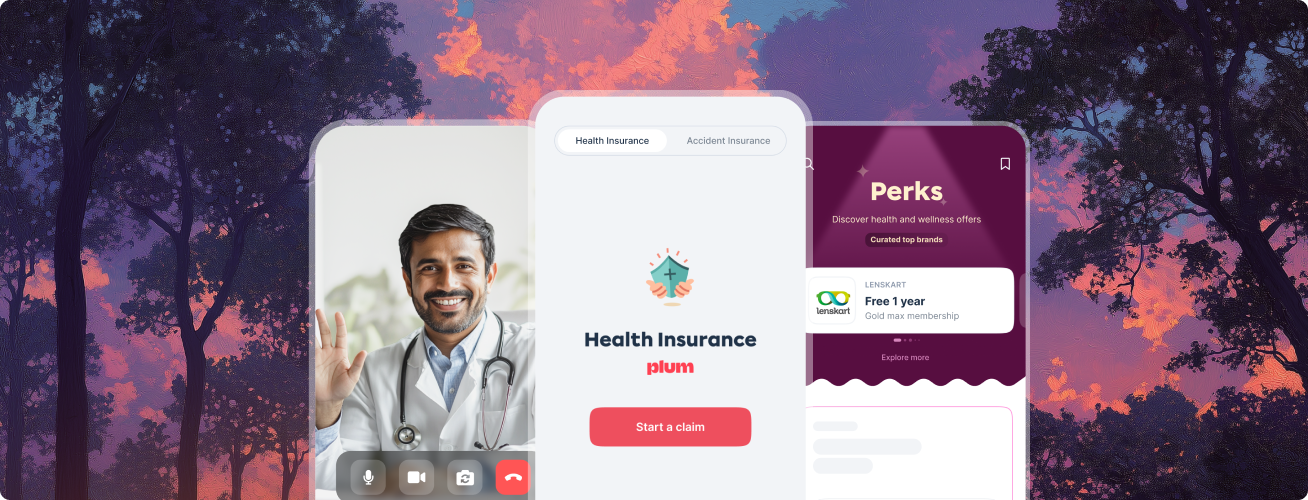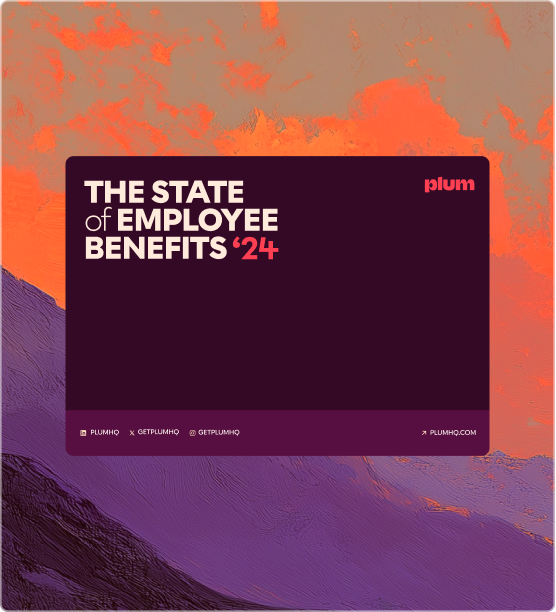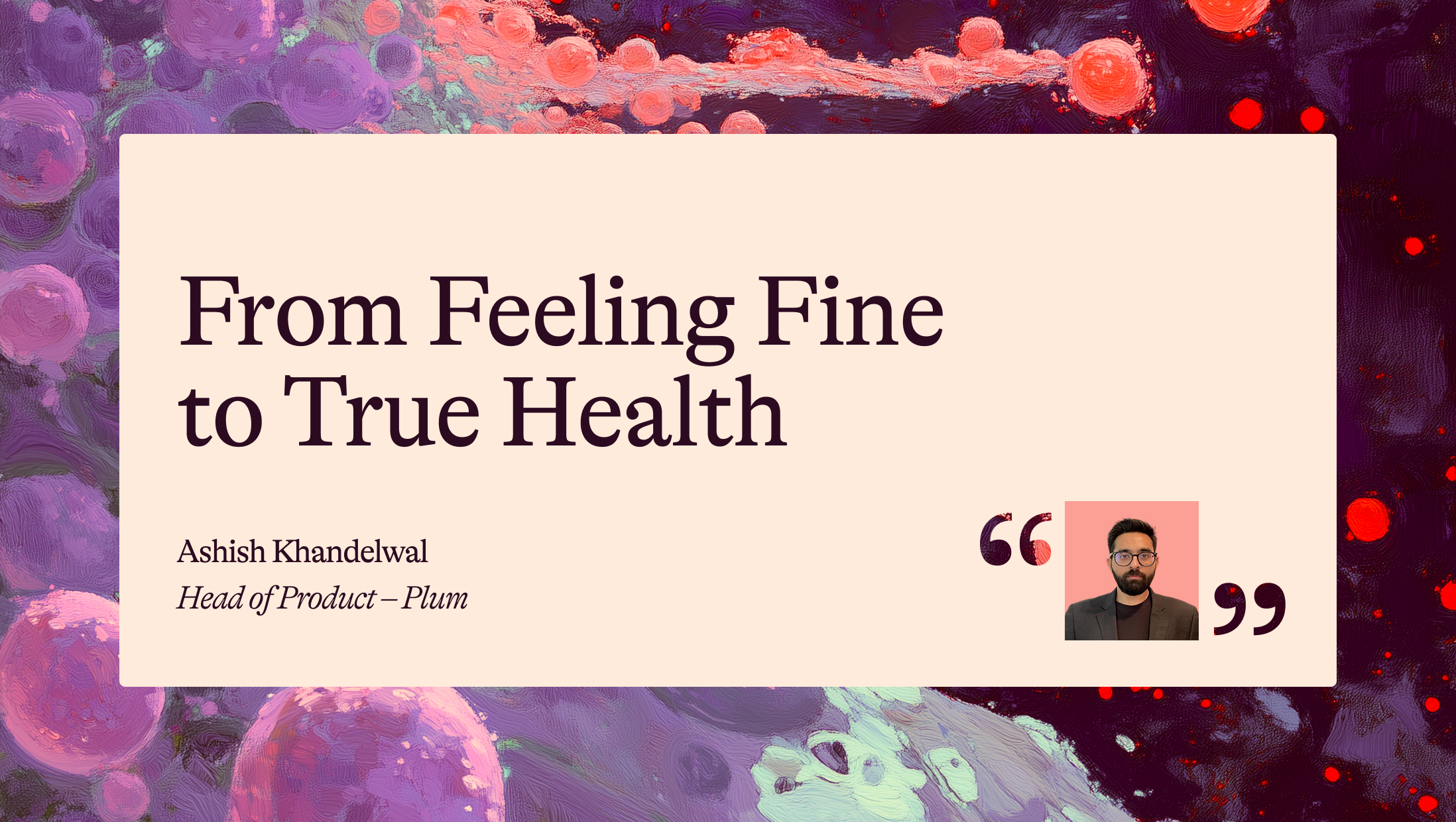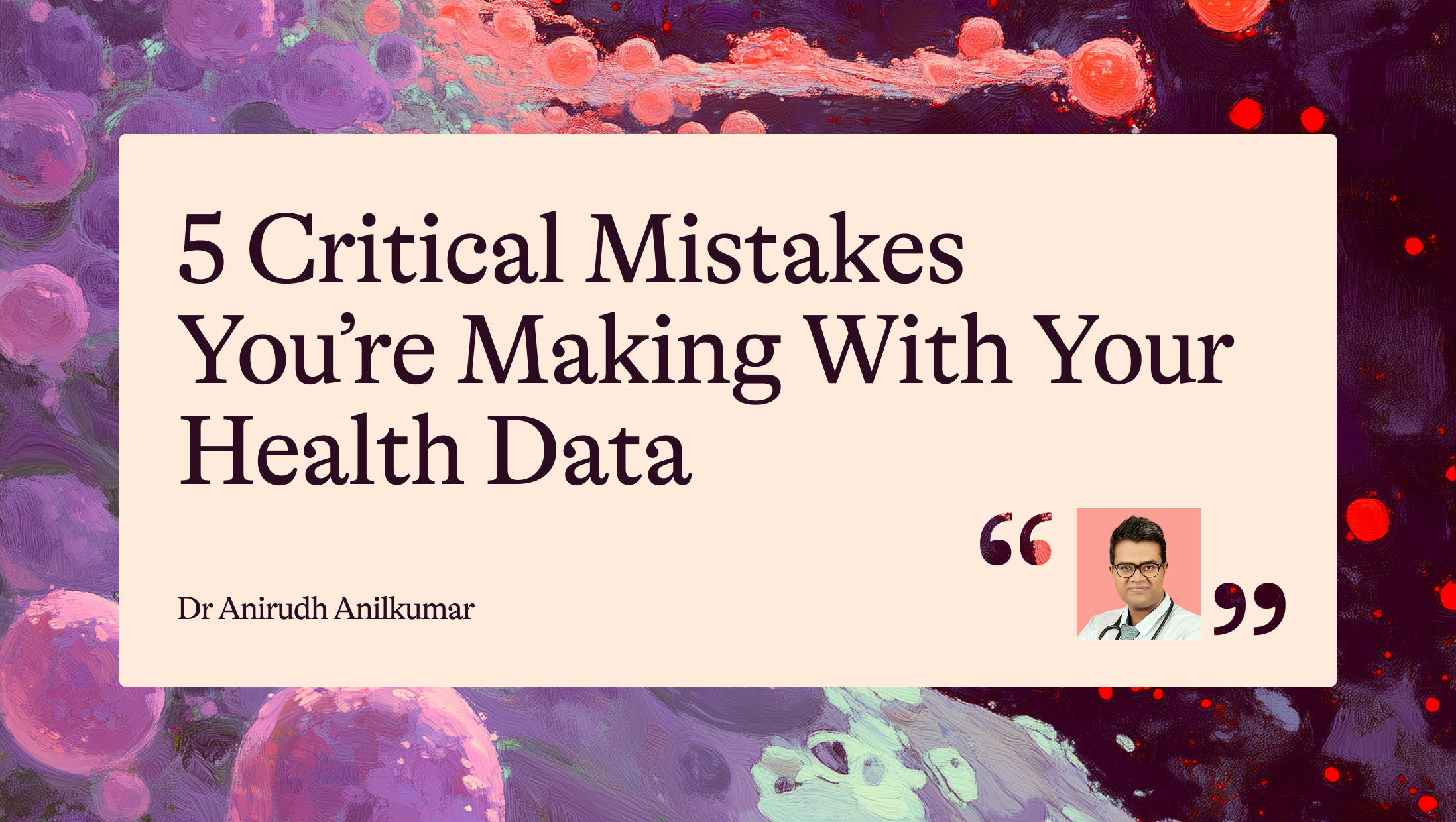In a world where "feeling fine" often passes for being healthy, Ashish Khandelwal's story reveals the hidden dangers of relying solely on how we feel. As Head of Product at Plum and the builder of Plum Health Checkups, Ashish takes health seriously—hitting the gym regularly, running for years, and maintaining good nutrition. Yet even he discovered that the most health-conscious individuals can have underlying issues that only surface through proper testing. Here's his candid account of a health wake-up call.
How do you personally define health?
I see health in three distinct parts: physical, mental, and biological. Most people only focus on the first two, but the third one is what really matters for long-term wellness.
Physical health is straightforward - it's how you feel day-to-day. Your energy levels, whether you can move comfortably, if you experience pain. For me, if I can run, walk, lift weights, or go trekking without discomfort, and I feel energetic throughout the day, that's physical health.
Mental health is about mood, emotional stability, and clarity of thought. I'm not just talking about the absence of stress, but whether you're thinking clearly, free from brain fog, and emotionally balanced. Mental health significantly impacts lifestyle diseases, so it's crucial to track.
But here's what most people miss—biological health. These are the invisible indicators that reflect what's actually happening inside your body. Things like blood sugar, vitamin levels, kidney and heart function, inflammation markers. This is the part you can't see or feel daily, but it determines your real health status.
You mention taking health seriously. What does that look like in practice?
I've been running for 6-7 years. I actually consider it my meditation. For the last 1.5 years, I've been doing strength training at the gym 3-4 times a week because I realized that in your 30s, building muscle becomes critical.
Nutrition-wise, I focus heavily on protein intake aligned with my body weight goals. I've learned to estimate calories intuitively—if I eat a samosa, I know it's about 200 calories with very little protein. I actually skip lunch to manage my overall calorie intake and keep indulgences limited to occasional ice cream.
In my 30s, my focus is on building muscle, maintaining a healthy weight, and managing nutrition strategically.
What motivated this level of health consciousness?
I had a personal awakening when I saw friends in their 30s who couldn't trek or be active anymore. That really hit me—there were people my age already experiencing early decline in health. I started consuming a lot of longevity-focused content, podcasts like Huberman Lab, and realized that the 30s are a critical period to prevent lifestyle-related deterioration. My guiding principles became longevity, muscle preservation, and maintaining high energy levels.
Despite all this health consciousness, you had some surprising discoveries during your health checkup. Can you walk us through what happened?
This is the perfect example of why feeling healthy isn't enough. I started strength training and increased my protein intake to build muscle. I wasn't drinking enough water, but my body gave me no signals that anything was wrong. I felt completely fine.
In January 2025, my Plum Health Checkup revealed some shocking things: I had borderline high HbA1c, which indicates pre-diabetes risk, despite my healthy lifestyle. My kidney function markers were elevated due to high protein intake combined with low hydration. And like most Indians, I had low vitamin D and B12 levels.
The scary part? If I hadn't taken these tests, 3-4 years down the line this could have led to serious problems like kidney issues.
How did you respond to these findings?
I made immediate lifestyle changes. I set water reminders and started drinking much more water, especially at the office. I became more conscious about high-carb and high-glucose foods in my diet. I started taking doctor-recommended vitamin D and B12 supplements. Most importantly, I committed to follow-up testing. I retested in June 2025 to track my improvements.
What were the results of your follow-up tests?
The changes were encouraging. My HbA1c levels dropped into a healthy range. My vitamin B12 levels normalized completely. Vitamin D improved but remained borderline despite supplements—this seems to be a persistent issue that needs ongoing attention. The kidney markers were still elevated, indicating I need to continue focusing on hydration. But I don't know if it's just my mind, but I definitely feel some changes in energy and recovery after making these adjustments.
Why do you think it's important for people to get tested even when they feel healthy?
Feeling fine doesn't always mean you're healthy. I've learned that many high-performing people, including marathoners and fitness enthusiasts, discover hidden issues only through biomarkers.
Your body often doesn't show clear signals of underlying issues until they become serious. Early detection can prevent hospitalization and chronic disease progression. Biomarkers reveal risks like pre-diabetes, hidden inflammation, or heart problems long before symptoms appear.
I believe testing once a year is good preventive practice; twice a year is even better for those who are actively managing their health.
As Head of Product at Plum and the person who built Plum Health Checkups, what impact do you hope this product will have?
My personal experience really drove the vision for Plum Health Checkups. We want to help people detect health risks early so they can avoid major issues later. Most importantly, we want to make advanced health monitoring accessible and understandable for the Indian workforce. Too many people are walking around thinking they're healthy just because they feel okay, when their biomarkers might be telling a completely different story. Building this product became personal for me after my own health discoveries.
Any final thoughts for our readers?
The biggest lesson from my experience is this: your body is incredibly good at adapting and not showing symptoms until problems become serious. Just because you're active, eat well, and feel fine doesn't mean you're actually healthy.
Your late 20s and 30s are critical. This is when you either set yourself up for a healthy, energetic future or unknowingly let problems build up that will hit you in your 40s and 50s. Don't wait for symptoms. Get tested, know your numbers, and take action based on data, not just how you feel. Your future self will thank you for the preventive steps you take today.
.png)








.png)





.webp)










